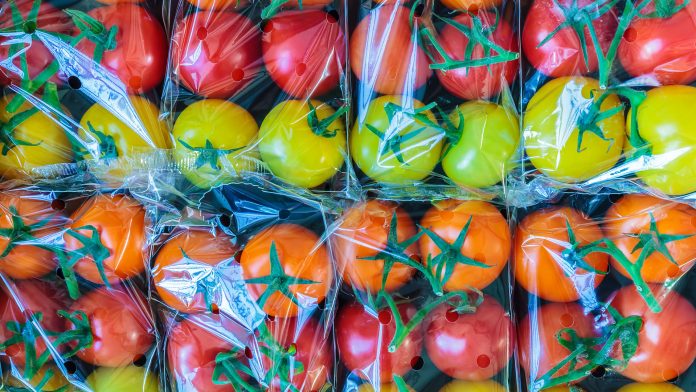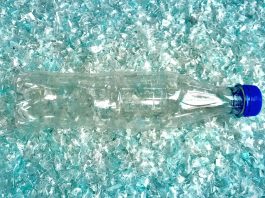An EU-funded project has created bioplastics from essential oils, cheese whey and almond shells. Once made into packaging, this polymer can extend the shelf life of food and reduce food waste.
New results from the EU-funded project YPACK suggest that their innovative formulation of active ingredients could allow this biodegradable food packaging to prolong the shelf life of foods and therefore reduce food waste.
What is YPACK?
YPACK’s bio-based plastic offers a compostable alternative to traditional plastic food packaging. YPACK’s packaging is made from a sustainable biopolymer, poly(3-hydroxybutyrate-co-3-hydroxyvalerate) (PHBV), created using cheese whey and micro-cellulose from almond shells. Biodegradability tests show full degradation within the regulated 90 days.
Dr José María Lagarón, from The Spanish National Research Council (CSIC), YPACK project coordinator, said: “The ideal packaging involves lower carbon and water footprints, is biodegradable and/or compostable, makes use of wastes or by-products, is properly eco-designed, safe and has the right preservation properties to minimise food waste. YPACK is delivering on this vision.”
The YPACK project is set to begin the next phase of consumer acceptance and shelf-life studies. In a preliminary consumer study done by YPACK including over 7000 consumers the results show they did not oppose the use of almond shells and cheese whey in food packaging materials. Passive and active packaging technologies were similarly acceptable to the consumers. Consumers across seven countries (Denmark, France, Hungary, Netherlands, Portugal, Spain, Turkey) participated in this study.
The science behind PHBV
YPACK’s PHBV was used to create very thin ‘bio-paper’ from food industry by-products. Zinc oxide and oregano essential oil are two of the active ingredients incorporated into the bio-papers. These compounds have good antimicrobial activity against two bacteria that can cause food poisoning: Staphylococcus aureus and Escherichia coli (E.coli).
Researchers found the optimal ratio of the active ingredients by testing which concentration showed successful short-term (15 days) and medium-term (up to 48 days) anti-bacterial effects in ‘open’ and ‘closed’ systems. This means the formula could be used for food products where the packaging is opened and closed several times, for example to packaged ham or bread.
These laboratory results show the potential of bio-based active packaging to increase the shelf life of fresh products like meat, vegetables, and fresh pasta. However, due to regulatory restrictions within the EU, the final YPACK packaging will not contain an active layer but will be made purely from biodegradable PHBV.





